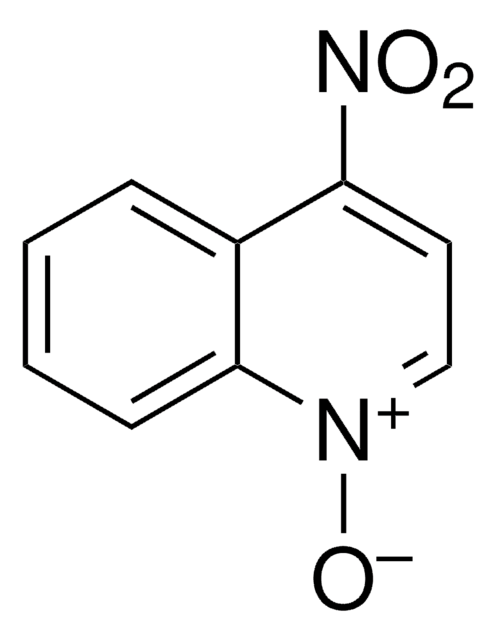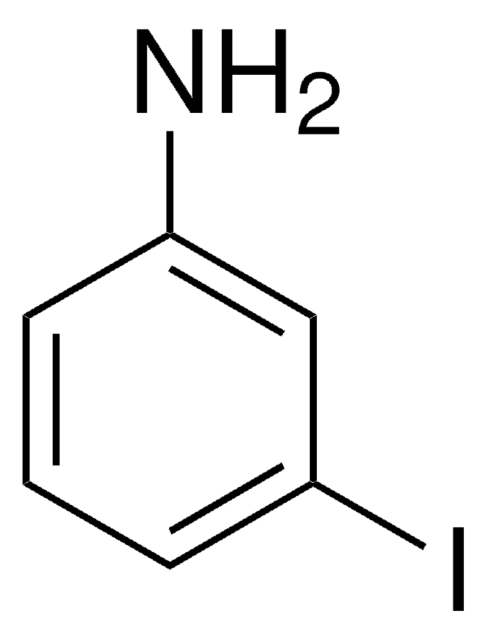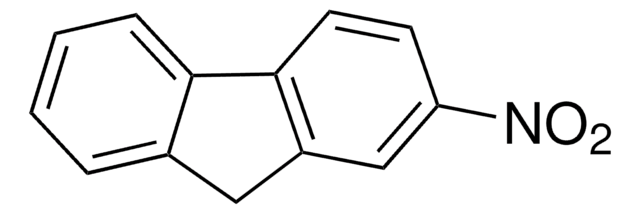Wichtige Dokumente
218448
4-Nitrochinolin N-Oxid
98%
Synonym(e):
4-Nitrochinolin-1-oxid
About This Item
Empfohlene Produkte
Assay
98%
mp (Schmelzpunkt)
154-156 °C (lit.)
SMILES String
[O-][N+](=O)c1cc[n+]([O-])c2ccccc12
InChI
1S/C9H6N2O3/c12-10-6-5-9(11(13)14)7-3-1-2-4-8(7)10/h1-6H
InChIKey
YHQDZJICGQWFHK-UHFFFAOYSA-N
Suchen Sie nach ähnlichen Produkten? Aufrufen Leitfaden zum Produktvergleich
Ersetzt durch
Signalwort
Danger
H-Sätze
Gefahreneinstufungen
Carc. 1B
Lagerklassenschlüssel
6.1C - Combustible acute toxic Cat.3 / toxic compounds or compounds which causing chronic effects
WGK
WGK 3
Flammpunkt (°F)
Not applicable
Flammpunkt (°C)
Not applicable
Persönliche Schutzausrüstung
Eyeshields, Gloves, type P2 (EN 143) respirator cartridges
Hier finden Sie alle aktuellen Versionen:
Besitzen Sie dieses Produkt bereits?
In der Dokumentenbibliothek finden Sie die Dokumentation zu den Produkten, die Sie kürzlich erworben haben.
Unser Team von Wissenschaftlern verfügt über Erfahrung in allen Forschungsbereichen einschließlich Life Science, Materialwissenschaften, chemischer Synthese, Chromatographie, Analytik und vielen mehr..
Setzen Sie sich mit dem technischen Dienst in Verbindung.





![Benzo[a]pyren ≥96% (HPLC)](/deepweb/assets/sigmaaldrich/product/structures/253/820/be96d879-1811-46c0-8f11-612019691c2d/640/be96d879-1811-46c0-8f11-612019691c2d.png)


